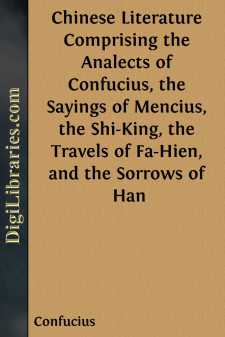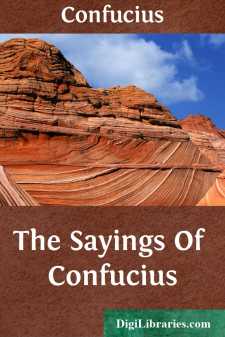Categories
- Antiques & Collectibles 13
- Architecture 36
- Art 48
- Bibles 22
- Biography & Autobiography 813
- Body, Mind & Spirit 142
- Business & Economics 28
- Children's Books 15
- Children's Fiction 12
- Computers 4
- Cooking 94
- Crafts & Hobbies 4
- Drama 346
- Education 46
- Family & Relationships 57
- Fiction 11828
- Games 19
- Gardening 17
- Health & Fitness 34
- History 1377
- House & Home 1
- Humor 147
- Juvenile Fiction 1873
- Juvenile Nonfiction 202
- Language Arts & Disciplines 88
- Law 16
- Literary Collections 686
- Literary Criticism 179
- Mathematics 13
- Medical 41
- Music 40
- Nature 179
- Non-Classifiable 1768
- Performing Arts 7
- Periodicals 1453
- Philosophy 64
- Photography 2
- Poetry 896
- Political Science 203
- Psychology 42
- Reference 154
- Religion 513
- Science 126
- Self-Help 84
- Social Science 81
- Sports & Recreation 34
- Study Aids 3
- Technology & Engineering 59
- Transportation 23
- Travel 463
- True Crime 29
Chinese Literature Comprising the Analects of Confucius, the Sayings of Mencius, the Shi-King, the Travels of Fa-Hien, and the Sorrows of Han
by: Confucius
Categories:
Description:
Excerpt
THE ANALECTS
BOOK I
On LearningвÐâMiscellaneous Sayings:вÐâ
"To learn," said the Master, "and then to practise opportunely what one has learntвÐâdoes not this bring with it a sense of satisfaction?
"To have associates in study coming to one from distant partsвÐâdoes not this also mean pleasure in store?
"And are not those who, while not comprehending all that is said, still remain not unpleased to hear, men of the superior order?"
A saying of the Scholar Yu:вÐâ
"It is rarely the case that those who act the part of true men in regard to their duty to parents and elder brothers are at the same time willing to turn currishly upon their superiors: it has never yet been the case that such as desire not to commit that offence have been men willing to promote anarchy or disorder.
"Men of superior mind busy themselves first in getting at the root of things; and when they have succeeded in this the right course is open to them. Well, are not filial piety and friendly subordination among brothers a root of that right feeling which is owing generally from man to man?"
The Master observed, "Rarely do we meet with the right feeling due from one man to another where there is fine speech and studied mien."
The Scholar Tsang once said of himself: "On three points I examine myself daily, viz., whether, in looking after other people's interests, I have not been acting whole-heartedly; whether, in my intercourse with friends, I have not been true; and whether, after teaching, I have not myself been practising what I have taught."
The Master once observed that to rule well one of the larger States meant strict attention to its affairs and conscientiousness on the part of the ruler; careful husbanding of its resources, with at the same time a tender care for the interests of all classes; and the employing of the masses in the public service at suitable seasons.
"Let young people," said he, "show filial piety at home, respectfulness towards their elders when away from home; let them be circumspect, be truthful; their love going out freely towards all, cultivating good-will to men. And if, in such a walk, there be time or energy left for other things, let them employ it in the acquisition of literary or artistic accomplishments."
The disciple Tsz-hia said, "The appreciation of worth in men of worth, thus diverting the mind from lascivious desiresвÐâministering to parents while one is the most capable of so doingвÐâserving one's ruler when one is able to devote himself entirely to that objectвÐâbeing sincere in one's language in intercourse with friends: this I certainly must call evidence of learning, though others may say there has been 'no learning.'"
Sayings of the Master:вÐâ
"If the great man be not grave, he will not be revered, neither can his learning be solid.
"Give prominent place to loyalty and sincerity.
"Have no associates in study who are not advanced somewhat like yourself.
"When you have erred, be not afraid to correct yourself."
A saying of the Scholar Tsang:вÐâ
"The virtue of the people is renewed and enriched when attention is seen to be paid to the departed, and the remembrance of distant ancestors kept and cherished."
Tsz-k'in put this query to his fellow disciple Tsz-kung: said he, "When our Master comes to this or that State, he learns without fail how it is being governed....



